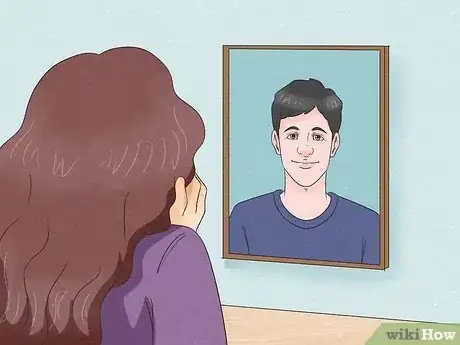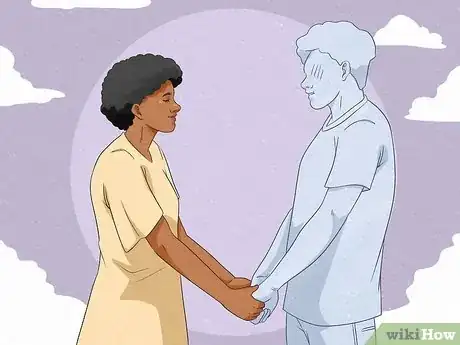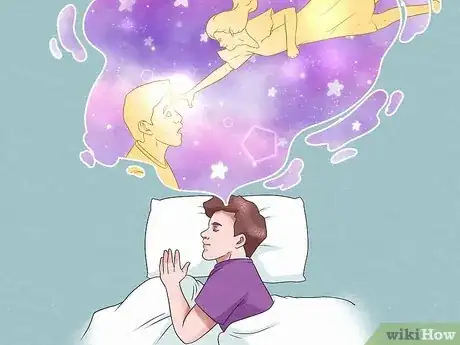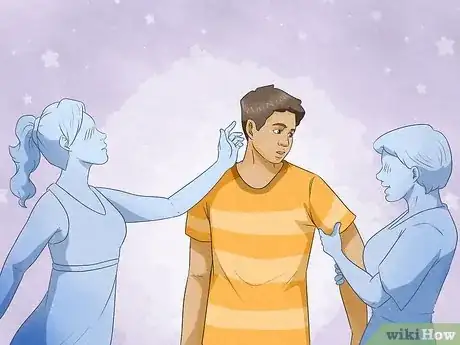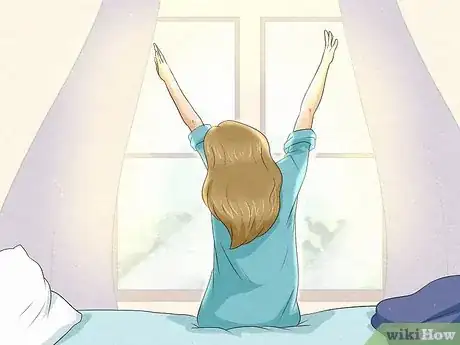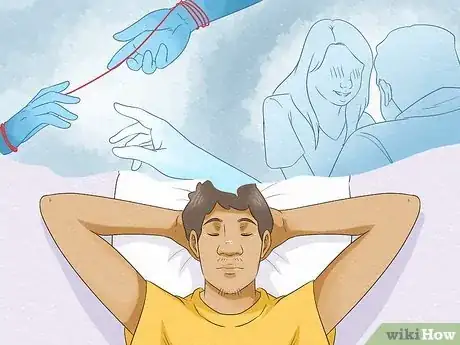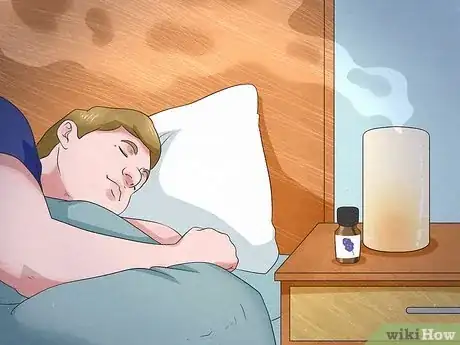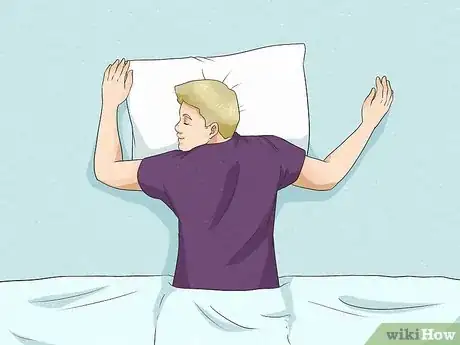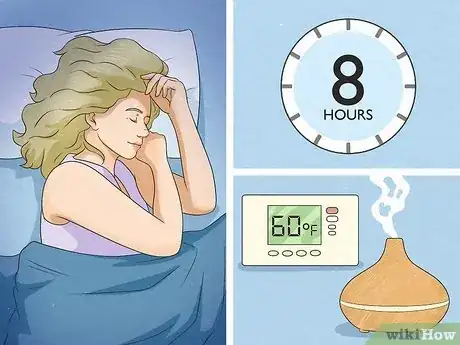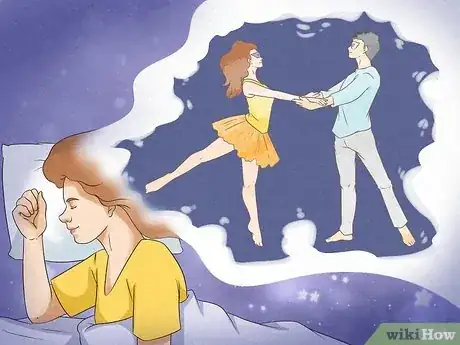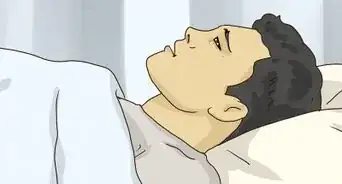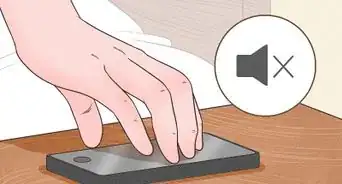This article was co-authored by Alex Dimitriu, MD and by wikiHow staff writer, Eric McClure. Alex Dimitriu, MD is the Owner of Menlo Park Psychiatry and Sleep Medicine, a clinic based in the San Francisco Bay Area with expertise in psychiatry, sleep, and transformational therapy. Alex earned his Doctor of Medicine from Stony Brook University in 2005 and graduated from the Stanford University School of Medicine's Sleep Medicine Residency Program in 2010. Professionally, Alex has dual board certification in psychiatry and sleep medicine.
There are 13 references cited in this article, which can be found at the bottom of the page.
This article has been viewed 11,872 times.
Want to know more about the special someone you’re going to meet one day? Have you already met them and you just want to know more? Dreaming about your soulmate can be a great way to gain insight into what your future love life has to offer. In this article, we’ll show you everything you need to know to find them in your sleep.
Steps
Expert Q&A
-
QuestionWhy can I not remember my dreams?
 Alex Dimitriu, MDAlex Dimitriu, MD is the Owner of Menlo Park Psychiatry and Sleep Medicine, a clinic based in the San Francisco Bay Area with expertise in psychiatry, sleep, and transformational therapy. Alex earned his Doctor of Medicine from Stony Brook University in 2005 and graduated from the Stanford University School of Medicine's Sleep Medicine Residency Program in 2010. Professionally, Alex has dual board certification in psychiatry and sleep medicine.
Alex Dimitriu, MDAlex Dimitriu, MD is the Owner of Menlo Park Psychiatry and Sleep Medicine, a clinic based in the San Francisco Bay Area with expertise in psychiatry, sleep, and transformational therapy. Alex earned his Doctor of Medicine from Stony Brook University in 2005 and graduated from the Stanford University School of Medicine's Sleep Medicine Residency Program in 2010. Professionally, Alex has dual board certification in psychiatry and sleep medicine.
Sleep Medicine & Psychiatry Professional We don't remember our dreams because we aren't designed to. Your dreams are your brain's way of doing some housecleaning throughout the night, whether that's rehearsing charged emotional situations, doing some problem solving, and/or testing hypotheses.
We don't remember our dreams because we aren't designed to. Your dreams are your brain's way of doing some housecleaning throughout the night, whether that's rehearsing charged emotional situations, doing some problem solving, and/or testing hypotheses. -
QuestionIs lucid dreaming a skill?
 Alex Dimitriu, MDAlex Dimitriu, MD is the Owner of Menlo Park Psychiatry and Sleep Medicine, a clinic based in the San Francisco Bay Area with expertise in psychiatry, sleep, and transformational therapy. Alex earned his Doctor of Medicine from Stony Brook University in 2005 and graduated from the Stanford University School of Medicine's Sleep Medicine Residency Program in 2010. Professionally, Alex has dual board certification in psychiatry and sleep medicine.
Alex Dimitriu, MDAlex Dimitriu, MD is the Owner of Menlo Park Psychiatry and Sleep Medicine, a clinic based in the San Francisco Bay Area with expertise in psychiatry, sleep, and transformational therapy. Alex earned his Doctor of Medicine from Stony Brook University in 2005 and graduated from the Stanford University School of Medicine's Sleep Medicine Residency Program in 2010. Professionally, Alex has dual board certification in psychiatry and sleep medicine.
Sleep Medicine & Psychiatry Professional Definitely! Lucid dreaming is all about being able to recognize that you're dreaming in the first place. People use all kinds of tricks to reach that state—for instance, you can't read print in a dream, so some people will try looking for print or text in their dream and see if it's legible.
Definitely! Lucid dreaming is all about being able to recognize that you're dreaming in the first place. People use all kinds of tricks to reach that state—for instance, you can't read print in a dream, so some people will try looking for print or text in their dream and see if it's legible.
References
- ↑ https://www.shape.com/lifestyle/mind-and-body/mental-health/how-to-set-intentions
- ↑ https://www.scientificamerican.com/article/how-to-control-dreams/
- ↑ https://www.inc.com/laura-garnett/10-ways-to-find-your-dream-job-and-your-soulmate.html
- ↑ https://medium.com/@rfribeiro/an-open-mind-with-a-closed-minded-person-can-a-relationship-work-c9566c1d675f
- ↑ https://www.bbc.com/future/article/20190516-why-cant-some-people-remember-their-dreams
- ↑ https://www.theatlantic.com/health/archive/2014/04/the-ways-to-control-dreaming/360032/
- ↑ Alex Dimitriu, MD. Sleep Medicine & Psychiatry Professional. Expert Interview. 16 October 2019.
- ↑ https://www.theatlantic.com/health/archive/2014/04/the-ways-to-control-dreaming/360032/
- ↑ https://www.womansday.com/health-fitness/womens-health/advice/g972/how-to-have-good-dreams/
- ↑ https://psycnet.apa.org/record/2012-19542-001
- ↑ Alex Dimitriu, MD. Sleep Medicine & Psychiatry Professional. Expert Interview. 16 October 2019.
- ↑ https://www.sciencedaily.com/releases/2017/10/171019100812.htm
- ↑ https://www.theguardian.com/lifeandstyle/2021/dec/14/the-semi-lucid-dream-trick-how-to-unlock-your-creative-genius-without-really-trying
- ↑ https://www.entrepreneur.com/article/252743
- ↑ Alex Dimitriu, MD. Sleep Medicine & Psychiatry Professional. Expert Interview. 16 October 2019.
- ↑ https://www.sciencedaily.com/releases/2017/10/171019100812.htm
- ↑ https://academic.oup.com/sleep/article/40/suppl_1/A271/3782160
